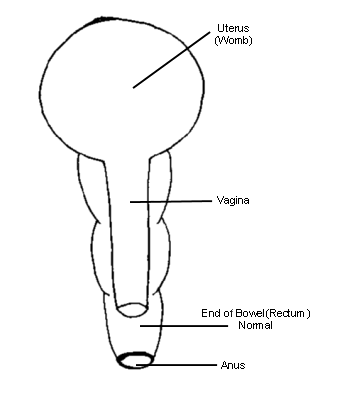
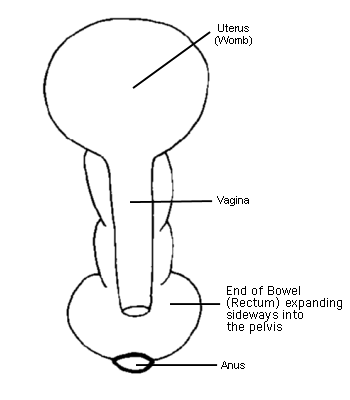
Rectocele - the name for a condition in which the end of the bowel (the rectum) can expand into the vaginal space or other areas of the lower pelvis. Rectoceles frequently cause difficulty in evacuating (passing a stool) and can also cause painful intercourse. Several types are documented and some examples follow.
A Side View of a Normal Vagina and Rectum
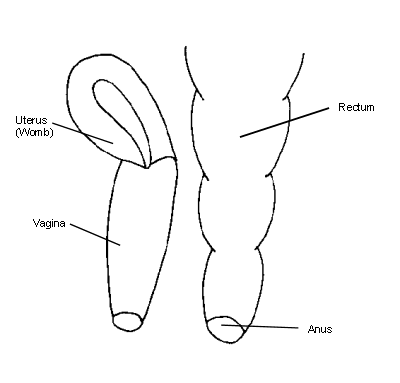
The rectum can expand into the back of the vagina, (known as an anterior (front) rectocele).
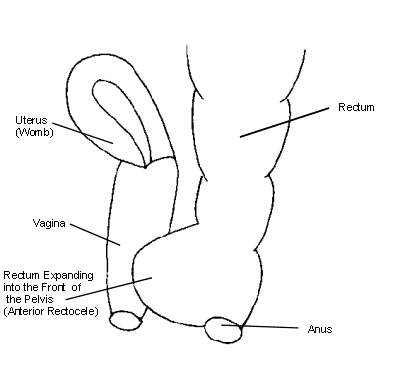
The rectum can expand toward the back of the back of the body (known as a posterior (back) rectocele).
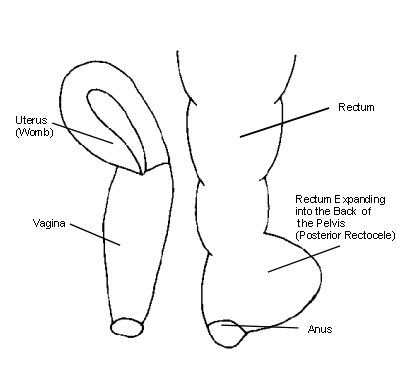
The rectum can expand to toward the front and/or back and/or sides of the pelvis, (no name is given to this condition).
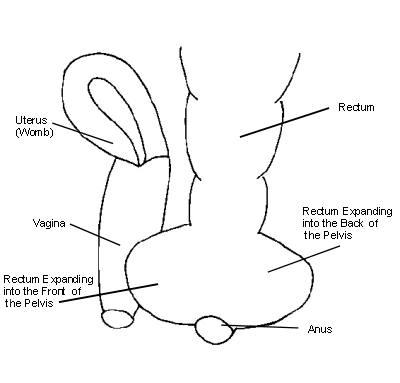
| Example of Normal Rectum Front View | Example of Abnormal Rectum Front View |
 |  |
| (Front View) | (Front View) |
Perhaps an analogy is if you have a rectocele when trying to evacuate it is like trying to pass a champagne cork rather than a wine cork.
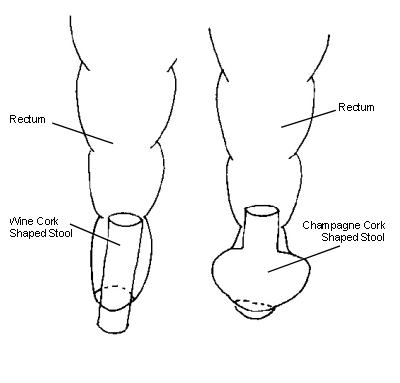
Many women have to place a piece of toilet paper over their finger and start the evacuation process manually or they cannot evacuate. Others have to put their fingers into their vagina and press upon the rectum through the back of vagina wall to evacuate. Rectoceles frequently go undiagnosed.
Difficulty in evacuating can leave a residue of faecal matter (stools) in the bowel and other problems can arise from this, e.g. inflammation, distension, bloating, the symptoms of which are often attributed to irritable bowel syndrome. Residue of faecal matter can become dry and hard (as water is absorbed back into the body from the bowel) and therefore dry and/or hard stools are formed, which are often attributed to the condition of being ‘constipated’.
Please click on the following link (Complementary Therapy) for further information.